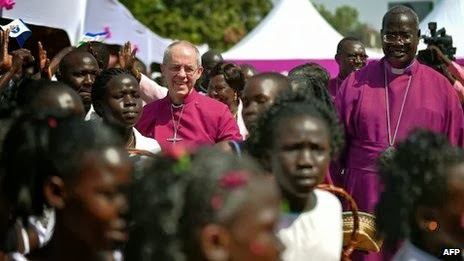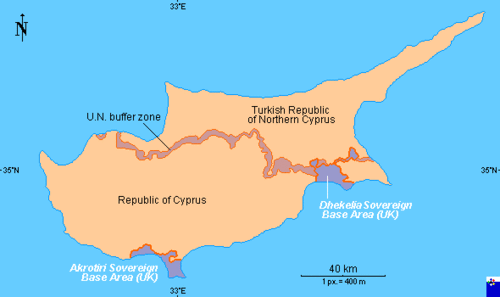 |
Volunteers
distribute Polish food donations to Syrian refugees in the largest
Bulgarian
camp of Syrian refugees in the town of Harmanli on January 21, 2014
(AFP/File,
Dimitar Dilkoff)
|
Harmanli —
Two months ago, hungry Syrian children were shuffling around barefoot in the
snow in Bulgaria's biggest refugee camp, while their miserable parents shivered
inside ragged tents.
But now the
threadbare khaki tents have disappeared, families have moved into
freshly-painted rooms and the United Nations is providing each refugee one hot
meal a day.
Donations
of food and clothes as well as 5.6 million euros ($7.6 million) in EU money
have helped ease the grim conditions that greeted Syrians fleeing almost three
years of civil war.
 |
A girl
crosses a puddle during the first
snowfall in a refugee camp set in the
Bulgarian town of Harmanli, south-east
of Sofia, on November 27, 2013
(AFP/File,
Nikolay Doychinov)
|
"I'm
starting to like this place. It's better than Syria anyway," shrugs dental
technician Husain Khatba, 23, one of about 11,000 refugees who fled from Syria
to neighbouring Turkey and then sneaked across that country's porous border
into Bulgaria.
Bulgaria is
a key entry point for Syrian refugees hoping to make their way further into the
European Union, but the bloc's poorest nation found itself overwhelmed by the
massive influx.
Dire
conditions at Harmanli, a former military camp, as freezing winter weather
gripped Bulgaria, prompted government appeals for help as the UN refugee agency
raised alarm over a "human emergency".
The aid
response has brought a touch of cheer to the camp, home to about 1,800 people,
as well as six other similar sites in the country.
Rows of
metal containers housing people remain, but those who had been living in tents
have now moved to two renovated buildings. Each family has its own room
furnished with new bunk beds, mattresses, blankets and bed linen. Another
building is also being prepared for single mothers with babies.
Portable
toilets line up along the main alley and there are several extra showers, even
if people say they are still too few.
 |
Volunteers
distribute Polish food donations
to Syrian refugees in the largest Bulgarian
camp in the town of Harmanli on January
21, 2014 (AFP/File, Dimitar Dilkoff)
|
Construction
debris from the ongoing refurbishments steal part of the glow from the newly
painted rooms and hallways. But as Khatba joked: "It's just very bad now
but not very, very bad as it used to be."
A tiny
medical clinic has also been set up in one of the buildings, while an
improvised school organised by the refugees themselves offers English classes
for the adults and English and maths for the children.
'Many
things have changed'
Even the
sounds around the camp are cheerier, as the shouts of children playing football
mingle with music blaring from a stereo in one of the buildings.
"Many
things have changed. There's aid coming from different people and organisations
and it's good," said another Syrian refugee, Rasheed Jamil, 35.
One major
improvement has been the distribution by the UNHCR of one hot meal per day. The
Bulgarian government is preparing to give out two meals a day in all camps from
February.
On the day
AFP visited, a truck stuffed with 22 tonnes of aid including clothes, food,
bedding, toys and even washing machines arrived from Poland after a campaign
there by volunteers Michal Borkiewicz and Maciej Pastwa.
 |
A Syrian
refugee looks out of the container
window in the largest Bulgarian camp in
the
town of Harmanli on January 21, 2014
(AFP/File, Dimitar Dilkoff)
|
"It's
a small thing but it is better than nothing," said Pastwa, 46, who drove
all the way to Harmanli this week to see the truck unloaded.
His friend
Borkiewicz, 33, said he was "ashamed and angry" that the European
Union had failed to take in larger numbers of refugees.
Amnesty
International said in December that EU leaders should "hang their heads in
shame" at their failure to provide safe haven for Syrian refugees,
estimating only 55,000 asylum seekers had been accepted into the EU.
An
estimated 2.4 million have fled the war.
The magic
'green card'
Despite the
improvements, the UNHCR earlier this month slammed "deplorable"
conditions in Bulgaria, such as a lack of food and healthcare and arbitrary
detention.
The agency
also flagged concerns over measures taken by Bulgaria to stop more refugees
from entering the country.
However
many only see Bulgaria as a stopover to a better future elsewhere in Europe.
 |
Michal
Borkiewicz loads a truck with over 13 tonnes of aid supplies such as clothing,
food, housewares and toys for Syrian refugees living in Bulgaria on January 15,
2014 in Warsaw, Poland (AFP/File, Wojtek Radwanski)
|
After
months of living in administrative limbo, the Syrians were recently
fingerprinted by Bulgaria's refugee agency, boosting hopes they might soon
receive what they call a "green card", the magic word on everyone's
lips.
The green
piece of paper allows the refugees to leave the otherwise closed camp and is
the first step in the lengthy administrative process towards obtaining refugee
status or asylum.
"Being
here is our biggest problem. We just want to take our documents and go,"
said Sahar Ibrahim, 21, who came with her family from Aleppo and, like most
Syrians here, wants to go to Germany.
"I
can't stay in Bulgaria. It's impossible here. I will try Germany or
Sweden," added Malik Morkis, 32, from Homs.





























